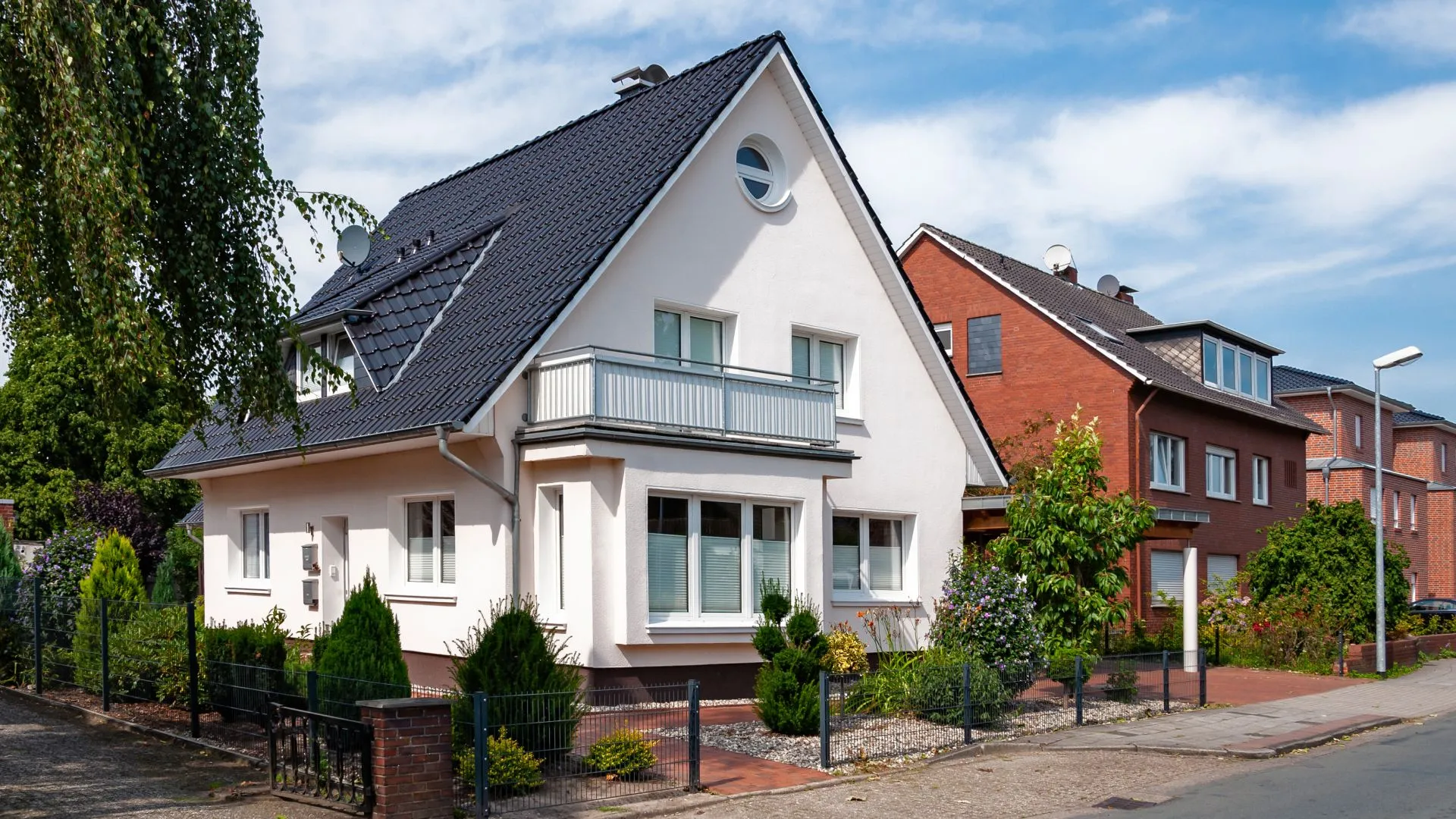Renting vs Buying in Germany: Key Benefits, Costs, and FAQs

Author
Phil LeuciIndroduction
Are you wondering whether buying or renting a property in Germany is the right financial move for you? Making the right choice can significantly impact your long-term wealth and lifestyle. In this article, we'll explore the benefits of homeownership versus renting, offering expert insights to help you evaluate your options. With the right tools—like our Property Investment Calculator—you can confidently decide the best path for your financial future.
Table of Contents
- Rent or Buy in Germany? Use This Calculator to Make the Right Financial Decision
- Unlocking the Benefits of Homeownership in Germany: Why Buying Beats Renting
- Buying a Home vs Renting in Germany: Key Factors Expats Should Consider
- House Ownership and Wealth: Why Buying a Home in Germany Could Be Your Best Investment
- Understanding the German Real Estate Market: A Guide for First-Time Buyers and Expats
- Renting Property in Germany: Is It Really Better Than Buying?
- What You Need to Know Before Buying Property in Germany: A Financial Breakdown
- Making the Right Choice: Should You Rent or Buy Property in Germany?
- Germany’s Real Estate Market: A Deep Dive for Expats Weighing Rent vs Buy
- Why Buying Property in Germany Can Build Wealth Faster Than Renting
Rent or Buy in Germany? Use This Calculator to Make the Right Financial Decision
As a financial expert in the German real estate market, one of the most common questions I encounter from expats is whether they should rent or buy a property. Many people feel that paying rent is simply throwing money away, but the reality is more complex. Comparing rent payments with mortgage payments is like comparing apples to oranges, and making the right financial decision requires careful consideration. That's why using tools like the Property Investment Calculator can give you a clearer picture of which option suits your financial situation better.
Unlocking the Benefits of Homeownership in Germany: Why Buying Beats Renting
Homeownership in Germany offers long-term financial benefits that renting can’t. While renting provides flexibility, owning a home builds equity, gives you control over your living space, and can be a hedge against inflation. Historically, property prices in Germany have steadily risen, meaning that buying a home could lead to significant financial gains over time. However, these benefits depend on your financial readiness, and tools like our Real Estate Search Engine can help you find properties that fit your budget.
Buying a Home vs Renting in Germany: Key Factors Expats Should Consider
When it comes to making the decision between buying and renting in Germany, expats should consider several key factors. The length of your stay, local real estate prices, and your financial situation all play a significant role. Short-term expats may find renting more convenient, but long-term residents can build substantial wealth through homeownership. Additionally, the German tax system doesn't allow deductions on interest for personal residences, unlike in some countries, which could impact your decision. Still unsure? Use the contact page to get personalized advice on your next steps.
House Ownership and Wealth: Why Buying a Home in Germany Could Be Your Best Investment
Real estate has been one of the best-performing assets in Germany over the past few decades. Owning a home can significantly contribute to your overall wealth, especially with the rising property values in cities like Munich and Berlin. While renting offers lower short-term costs, homeownership provides long-term financial benefits as property values appreciate over time. If you're looking to maximize your wealth, buying a home could be the smartest financial move you make. Try out our Property Investment Calculator to estimate potential returns.
Understanding the German Real Estate Market: A Guide for First-Time Buyers and Expats
The German real estate market is unique in many ways, and first-time buyers and expats need to be aware of the local regulations, taxes, and market conditions. Prices vary greatly from region to region, and cities like Frankfurt, Munich, and Hamburg are known for their high demand and limited supply. Additionally, expats must navigate the mortgage process, which can be more stringent than in other countries. Be sure to do your research and explore the Real Estate Search Engine to understand the market in your preferred area.
Renting Property in Germany: Is It Really Better Than Buying?
While buying property in Germany has its benefits, renting can be the better option for expats who value flexibility. Renting allows you to move more freely and avoid the long-term commitment of homeownership. Additionally, tenants in Germany benefit from strong legal protections, and rental prices tend to be stable compared to other major European cities. However, renting doesn’t build equity, so it’s essential to weigh your options carefully. For those looking to invest long-term, buying may still be the better financial choice.
What You Need to Know Before Buying Property in Germany: A Financial Breakdown
Buying property in Germany involves several financial factors that you should be aware of before making a decision. Apart from the property price, buyers need to account for additional costs such as the real estate transfer tax (Grunderwerbsteuer), notary fees, and registration fees. These can add up to 10% of the property's value, so it's important to budget accordingly. Using our Property Investment Calculator can help you estimate these costs and determine whether you're financially prepared for homeownership.
Making the Right Choice: Should You Rent or Buy Property in Germany?
The decision to rent or buy a property in Germany depends on your personal circumstances. Expats who plan to stay for a shorter period may find renting more convenient, while those with long-term plans can benefit from the wealth-building potential of homeownership. By weighing the pros and cons, and using tools like our Real Estate Search Engine, you can make an informed decision that aligns with your financial goals.
Germany’s Real Estate Market: A Deep Dive for Expats Weighing Rent vs Buy
Germany's real estate market has been steadily growing, particularly in major cities like Berlin, Munich, and Frankfurt. Expats looking to invest in real estate should be aware of market trends and the challenges associated with buying property. While homeownership offers long-term benefits, high property prices in urban areas can make it difficult for some expats to afford. If you’re considering buying, explore our Property Investment Calculator to evaluate whether it's the right financial move for you.
Why Buying Property in Germany Can Build Wealth Faster Than Renting
One of the biggest advantages of buying property in Germany is the potential for building wealth. Over time, property values in Germany have consistently increased, making real estate a sound investment. Homeownership allows you to benefit from capital appreciation, which can significantly boost your net worth compared to renting. By purchasing a property in a desirableSure! Here's the continuation of the rewritten content with proper transitions: ```html net worth compared to renting. By purchasing a property in a desirable location and holding onto it for several years, expats can build significant equity. This equity can be reinvested, used for renovations, or even for securing loans in the future. While renting may provide flexibility, buying a property can yield financial security and wealth creation over the long term. If you're looking to calculate the financial benefits of owning a property, don't hesitate to try out our Property Investment Calculator to see how property ownership can work in your favor.
FAQs
1. Is buying a home in Germany a good investment?
Yes, buying a home in Germany can be a strong investment, especially in high-demand areas. Over time, property values tend to appreciate, offering long-term wealth-building opportunities. However, it’s essential to consider your financial situation and location before making a decision.
2. What are the advantages of renting a property in Germany?
Renting provides flexibility, fewer responsibilities, and lower upfront costs. It’s ideal for expats or those staying short-term, as tenants avoid maintenance expenses and can move more easily compared to homeowners.
3. What hidden costs should I consider when buying a property in Germany?
In addition to the purchase price, you should account for real estate transfer tax, notary fees, property registration fees, and ongoing maintenance costs. It’s important to budget for these expenses to avoid surprises.
4. Is renting cheaper than buying in Germany?
While renting may have lower upfront costs, buying can be more economical in the long term if property values rise. However, this depends on location, market conditions, and the length of time you plan to stay.
5. Can I deduct mortgage interest on my home in Germany?
In Germany, mortgage interest is not tax-deductible for personal residences, unlike in some other countries. However, real estate investors can deduct mortgage interest, making it an important factor for those buying property for rental income.
Conclusion: Making the Right Choice for Your Future
Ultimately, the decision to rent or buy in Germany is a personal one that depends on your financial situation, how long you plan to stay, and your goals for the future. Renting provides flexibility, low upfront costs, and fewer responsibilities, while buying offers the chance to build wealth and invest in a tangible asset. Use the tools and resources available, such as the Real Estate Search Engine and our Property Investment Calculator, to help you make the best decision.
If you're still unsure which option is right for you, feel free to contact us for personalized advice. Whether you're looking to rent or buy, Finance for Expats is here to guide you through every step of your real estate journey in Germany.
List of benefits
- Build Long-Term Wealth: Homeownership allows you to build equity and potentially benefit from rising property values over time.
- Control Over Property: Owning a home gives you the freedom to renovate, personalize, and make long-term decisions about your living space.
- Investment Opportunity: Real estate in Germany, especially in high-demand areas, offers strong potential returns on investment.
- Fixed Housing Costs: A mortgage can provide stability in monthly payments, unlike fluctuating rent prices.
- Tax Benefits for Investors: Although homeowners don’t benefit from personal deductions, real estate investors can deduct mortgage interest.
- Flexibility and Low Commitment (for renters): Renting offers greater flexibility, fewer responsibilities, and lower upfront costs, making it ideal for expats or short-term stays.
- No Maintenance Costs (for renters): As a tenant, your landlord is responsible for major repairs and maintenance, reducing your financial burden.
- Wealth Building via Forced Savings: Mortgage payments force homeowners to save and build equity over time, often leading to financial discipline.



